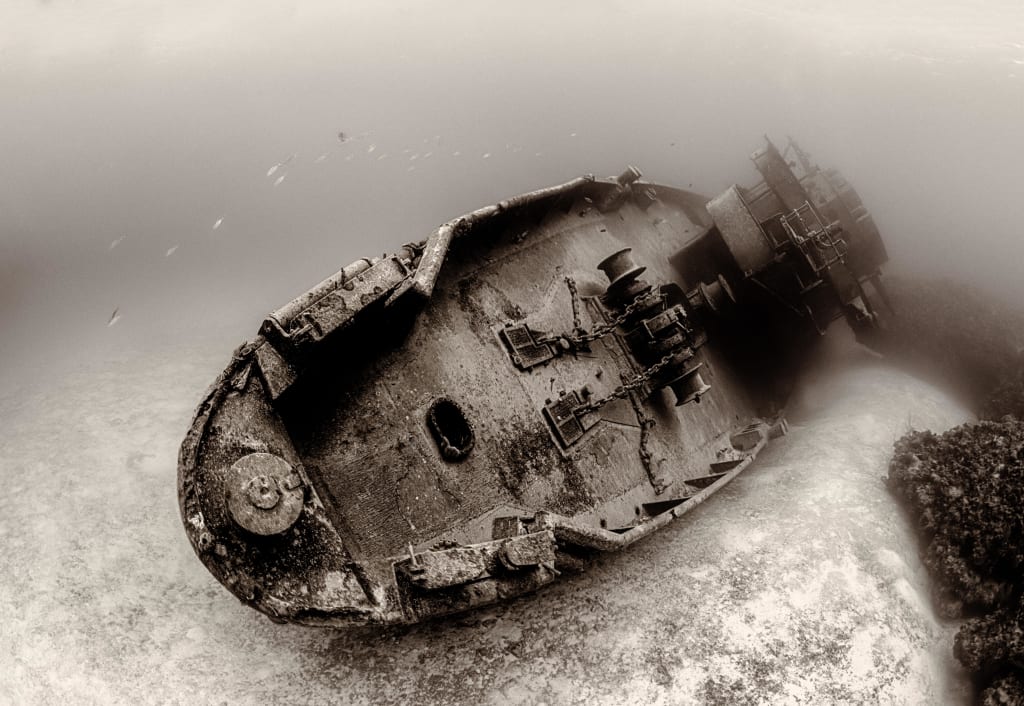Shipwrecks More Tragic Than the Titanic
Unveiling Forgotten Maritime Disasters

When we think of catastrophic shipwrecks, the sinking of the Titanic often comes to mind. However, history has witnessed other maritime tragedies that surpassed the Titanic in terms of human loss and devastating circumstances. This article delves into some of these forgotten shipwrecks, shedding light on the Sultana Steamboat, the Le Joola ferry, the Dona Paz passenger ferry, and the Arctic passenger ship. These lesser-known disasters serve as stark reminders of the dangers faced by seafarers throughout history, showcasing the unpredictable nature of the vast oceans.
The Sultana Steamboat Disaster:
On April 27, 1865, tragedy struck when the Sultana Steamboat met its doom. Operating between St. Louis and New Orleans, this technologically advanced vessel was considered unsinkable. However, on that fateful day, it was carrying over 2,000 passengers, far exceeding its capacity. Despite a broken boiler, lack of lifeboats, and unfavorable river conditions, the captain, driven by greed, set sail. As the vessel battled the mighty Mississippi River, a devastating explosion occurred, resulting in one of the most tragic shipwrecks in U.S. history. The exact death toll remains uncertain, ranging from 961 to 1,800 lives lost.
The Le Joola Ferry Tragedy:
In 2002, the coastal waters of Senegal witnessed a harrowing disaster aboard the Le Joola ferry. After a year of poor maintenance, the vessel embarked on its ill-fated voyage. Ignoring its coastal limitations, the ferry sailed into treacherous waters during a severe storm. Overloaded with passengers, the Le Joola succumbed to powerful waves, capsizing and trapping its occupants. With inadequate rescue equipment and the vessel far from shore, the tragedy claimed the lives of hundreds, reminding us of the catastrophic consequences of negligence and a lack of preparedness.
The Dona Paz Passenger Ferry Catastrophe:
The Philippines, known for its hazardous waters, became the setting for one of the worst maritime disasters in history. On September 20, 1987, the Dona Paz passenger ferry collided with the oil tanker Vector. The collision triggered a massive fire and the subsequent sinking of both vessels. With limited life-saving measures and a rapid inferno, only a few dozen survivors emerged from the tragedy. The catastrophe remains etched in the annals of navigation history as a grave reminder of the devastating impact of marine accidents.
The Arctic Passenger Ship Tragedy:
Amidst foggy conditions in 1854, the Arctic passenger ship departed from Liverpool, destined for New York. Tragically, it collided with the smaller French steamer Vesta, leading to a disastrous turn of events. As the Arctic's crew focused on the damaged Vesta, their ship quickly filled with water. Chaos ensued as lifeboats were deployed, but only a mere 87 individuals out of the 400 on board survived the ordeal. The incident sparked widespread outrage and scrutiny, raising questions about maritime safety practices and the responsibility to protect all passengers.
While the Titanic's sinking garnered global attention, it is essential to remember that other maritime disasters have claimed more lives and unfolded in equally tragic circumstances. The Sultana Steamboat, Le Joola ferry, Dona Paz passenger ferry, and Arctic passenger ship represent poignant reminders of the dangers inherent in maritime travel. Although modern technology and navigation systems have enhanced safety measures, these heart-wrenching stories serve as a solemn reminder that the sea remains unpredictable, and the human spirit must continually strive for improved preparedness and vigilance in the face of potential disasters.
About the Creator
Samantha Pienaar
I'm Sam, a beach-loving South African writer from Mossel Bay. Mountains make me the happiest. Mom to a mischievous 4-year-old boy who loves the outdoors. I love to write about facts and mysteries. Let's explore the unknown together!





Comments
There are no comments for this story
Be the first to respond and start the conversation.